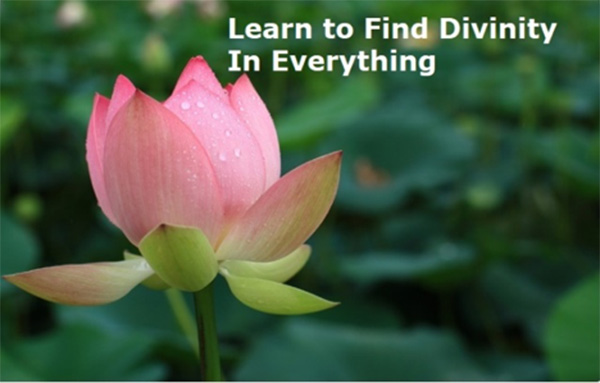Chapter 1 – Concentration/Samadhi Pada – Part 18
Gaining Knowledge – Higher Truths, cont. – Yoga Sutras (1.49-1.51)
Overview: Most knowledge is commingled with words or other concepts, and thus the knowledge of the object is not really pure knowledge. This is the nature of most of our experiences. Like other experiences, Samadhi, or deep absorption leaves its impressions in the mind field. Like other impressions, these impressions also cause their subsequent effects. On the path of Self-realization, you systematically find attention moving past all of the levels of your being.
Yoga Sutra (1.49) – shruta anumana prajnabhyam anya-vishaya vishesha-arthatvat. Shrutameans heard or received. Anumana (lit. from the mind), inference, understanding, conclusion. Prajnabhyam means from those kinds of knowledge. Anya-vishaya (anya = different, vishaya = objects), of different objects. Vishesha-arthatvat means relating to particular or special objects, purpose, or significance.
Translated this means – Consciousness is characterized by a special relationship to the object. This relationship exceeds the bounds of knowledge that has been thus far received and followed.
In other words, that knowing is different from the knowledge that is intermingled with testimony or through inference. It relates directly to the specifics of the object, rather than to the representative words or other concepts.
Commentary: The focus of nirvichara samadhi is directed toward an object with a special or particular purpose. That object is the deepest Self, and its special purpose will be more fully revealed in sutras 1.50 and 1.51.
The Bhagavad-Gita implies that knowledge gained through scripture and logic (inference) is an important tool. But the importance of this tool should not be confused with what is crafted from it. Krishna says that for those “who know,” scriptural knowledge is like a well in a land deluged by fresh water. When we strengthen the connection to our true Self, our divine core, we learn to see that divinity in everything that surrounds us.
Yoga Sutra (1.50) – tajjah samskarah anya samskara paribandhi. Tajjah means from this. Samskarah means deep impressions or tendencies. Anya is other, different. Samskara means deep impressions or tendencies. Paribandhi means to prevent or obstruct.
Translation – This type of knowledge is filled with truth and creates latent impressions in the chitta (mind-field). Those new impressions tend to reduce the formation of other less important or useful forms of habitual latent impressions. Put more simply, this experience gives rise to impressions (samskaras) that supplants other impressions (samskaras).
Commentary: Anya samskara (other impressions) gives a perspective to contrast this new sense of being with all that we’ve known before, and pratibandhi, from prati (in opposition to) and bandh (to bind, lock) is the “wiping out” or “exclusion” of these habitual ways of thinking and being from our future experiences.
Yoga Sutra (1.51) – tasya api nirodhe sarva nirodhat nirbijah samadhih. Tasya is of that. Api means too or also. Nirodhe means to become calm, tranquil. Sarva is of all or from everything. Nirodhat means control, regulation. Nirbijah is lacking seed, seedless; Samadhih (from Samadhi) deep absorption in meditation, bliss.
Translated to mean – Eventually, even these latent impressions (mentioned in sutra 1.50) from truth based on knowledge recede along with the other (inferior) impressions. Then there is concentration free from objects. Once nirbiija samadhi is attained, even these impressions will become tranquil and then everything has become tranquil.
This sutra (1.51) is the final and climactic sutra of Pada (book) #1 and for some may be a “hard pill to swallow.” Especially those who have earnestly studied Patanjali’s preceding ideas and attempted to put them into regular practice. In these last few sutras, Patanjali informs us that we must put aside our highest, hard-fought-for achievements if we wish to reach the final goal.
~Rae Indigo
This concludes chapter (book) 1 of 4 – Patanjali’s Yoga Sutras.
